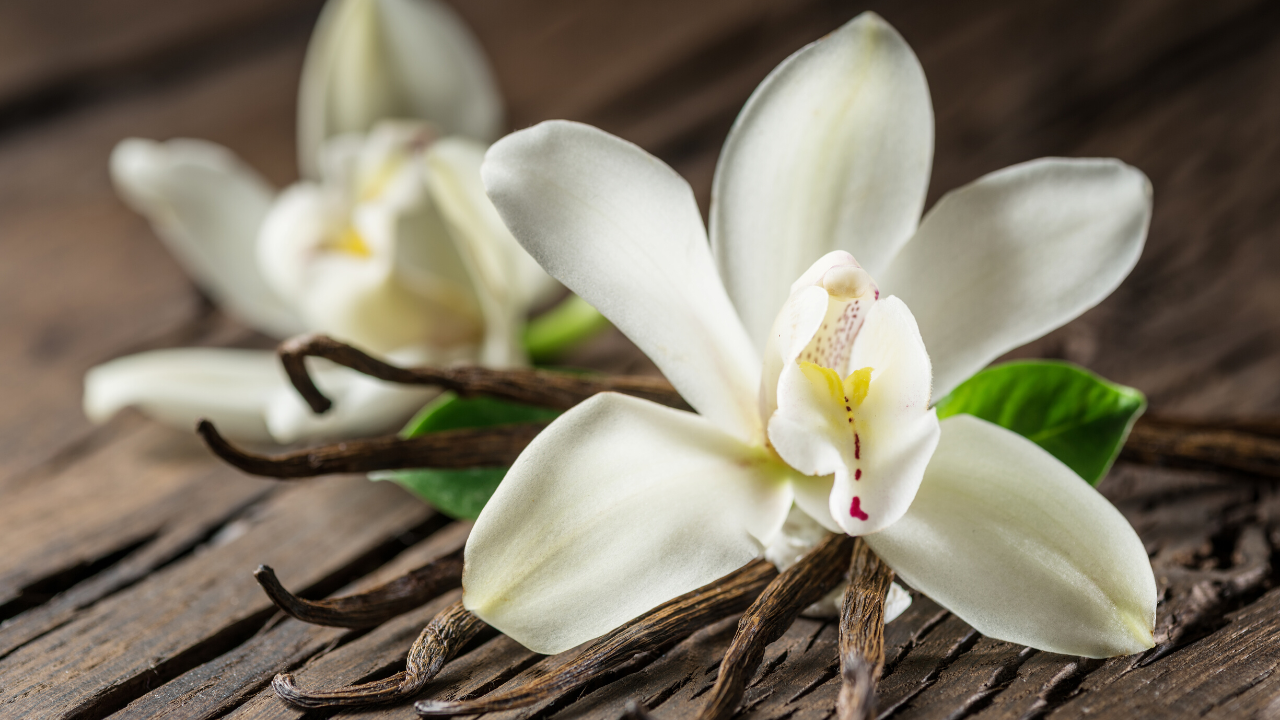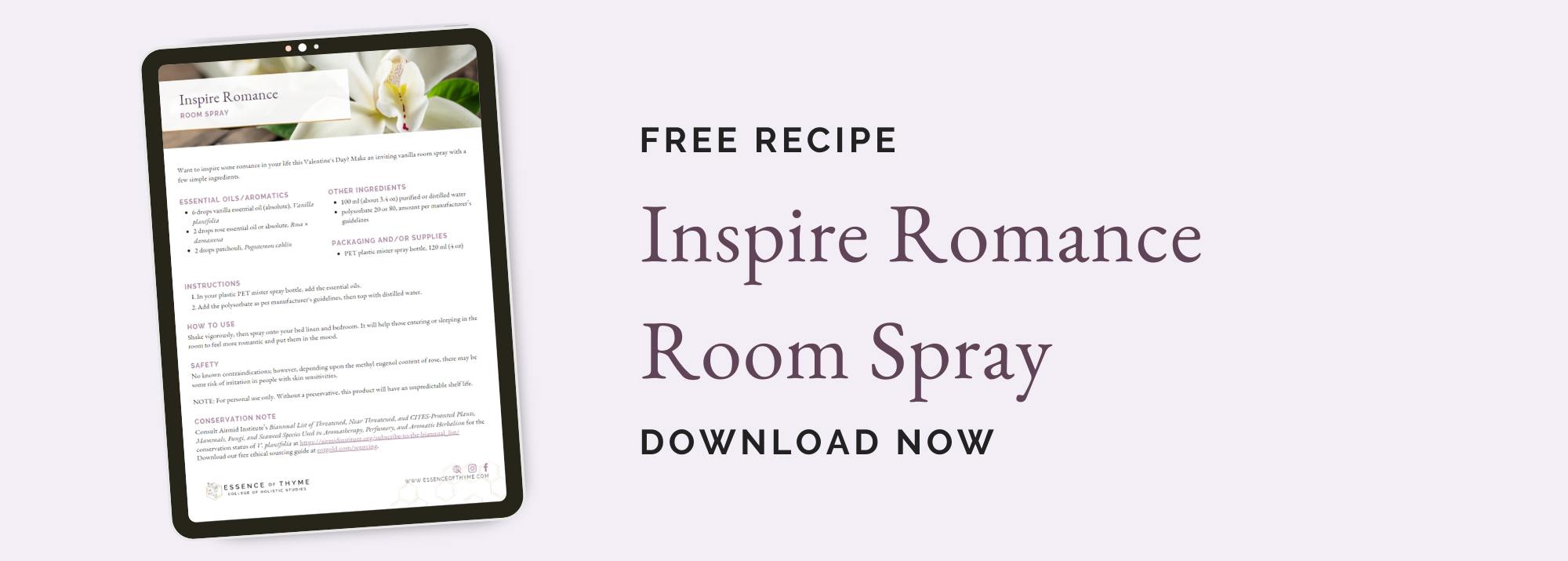All about vanilla, 'Vanilla planifolia'

Vanilla is such an alluring and playful scent, and is fact one of the world's most popular aromas. It evokes memories of peace, happiness, and comfort. For some, it reminds them of cleaning as many people in the past used vanilla extract to clean their whitegoods. For others it reminds them of baking and cooking. But for many, the scent of vanilla evokes feelings of love and passion, so during this season of Love, we thought it pertinent to delve into the topic of vanilla.
When it comes to aromas, vanilla is one of the world's most popular scents, always featuring in the top 5 along with scents like rose, coffee, and lavender. Somewhere along the way, though, the word “vanilla” has come to mean dull, bland or unoriginal; however, this scent is anything but bland! It evokes feelings of peace, happiness, and contentment. It can change our moods leaving us feeling uplifted, soothed and comforted.
There is no vanilla essential oil; everyone just calls it that. Technically it is an oleoresin, a semi-solid concentrate.This means it is extracted differently than essential oils. The aromatic compounds of vanilla cannot be attained by steam distillation. The only way to release the aromatic compounds of the vanilla bean is to use a solvent extraction. Although this is recognized as vanilla absolute, for sake of ease we will refer to it as vanilla oil or vanilla essential oil.
It is a highly prized ingredient in the perfumery industry, as well as the food and flavouring industry. It is a wonderful ingredient in bath washes, perfumes, air fresheners, room sprays, and lip balms, to name a few. The high demand has led to sustainability issues. It is on the IUCN Red List, so we must look for sustainable cultivated sources, and use it mindfully.
Let’s dive into the history of vanilla and its therapeutic benefits.
About Vanilla
Vanilla oil is produced from the cured pods of the Vanilla planifolia plant, which is a part of the Orchid family. It is traditionally grown in Mexico, Madagascar, Indonesia, and parts of Central America.
According to Peace Rhind (2014), the vanilla odour is “contributed by an aromatic aldehyde called vanillin which crystallizes on the surface of the cured vanilla pods.”
The vanilla plant produces yellow-white flowers, which need to be hand pollinated within 24 hours of blooming to produce the bean or pod. The bean or pod is used to extract the oil by either solvent or CO2 extraction (i.e. vanilla CO2 extract). In short, obtaining vanilla oil is a labour-intensive and time-consuming process, all of which adds to its high price. Like all precious aromatics, it is best to use this ingredient sparingly so as to not waste this precious resource.
The challenges facing the use of aromatics like vanilla are the primary reason Essence of Thyme is dedicated to fostering ethical aromatherapy education. We have partnered with the Airmid Institute Plant Protector Program to help advance Airmid’s mission: bringing healing to not only these fragile plants we hold so dear, but also to the planet as a whole.
Therapeutic Benefits of Vanilla
Vanilla has wonderful anti-aging properties, helping to soothe fine lines and wrinkles, heal damaged skin and reduce age spots. A growing body of research suggests that vanilla can improve skin firmness and reduce the signs of skin aging.
While there is not a vast amount of research into vanilla, there is some promising data. The University of Illinois (Aydin et al., 2019) found that vanilla has medicinal applications for the treatment of conditions such as body spasms, gastrointestinal problems, and fever. Another study found that the vanilla scent improved visual reaction times and cognitive function. This is definitely a case of “watch this space, and see what other research comes out.”
Vanilla is the perfect oil for Valentine's Day. One of the most well known properties of vanilla is its aphrodisiac properties. It is reported that the scent of vanilla helps put people in the mood by relaxing them and increasing their happiness. Vanilla stimulates hormones like testosterone and estrogen which help bring about normal sexual behaviour and promote sexual arousal (Maskeri et al., 2012). One study found that male rats who were exposed to vanillin exhibited higher levels of sexual activity, and the more vanillin they were exposed to, the more sexual activity they demonstrated.
Blending with Vanilla
Vanilla has a sweet, rich, and warm aroma. It is known as a base note or a fixative in perfumery. This essentially means the aroma lingers longer, increasing the tenacity of the blend.
You can have a lot of fun creating aromatic blends with vanilla. It blends well with most oils, but particularly with:
- orange (Citrus × sinensis)
- mandarin (Citrus nobilis)
- lime (Citrus aurantifolia)
- lavender (Lavandula angustifolia)
- jasmine (Jasminum officinale)
- rose (Rosa damascena)
- geranium (Pelargonium × asperum)
- East Indian sandalwood (Santalum album)
- patchouli (Pogostemon cablin)
How to Make Vanilla-Infused Oil
To make your own vanilla infused oil, ethically source vanilla pods, and slice them into tiny pieces before placing them in a jar. Fill the jar with a scentless carrier oil such as grapeseed or almond oil. Place the lid tightly on the jar, and let it sit for 3–4 weeks. Swirl and turn the jar daily to ensure the vanilla infuses itself nicely into the base oil. After this time has passed, strain the oil to remove the vanilla pieces. The infused oil will now smell like vanilla and can now be used as an ingredient in your homemade skincare products, or as a base for your roller bottle perfumes. The possibilities are endless.
Get a Free Vanilla Room Spray Recipe!
Want to inspire some romance in your life this Valentine’s Day? Make an inviting vanilla room spray with a few simple ingredients. Enter your name and email address below to get a printable vanilla recipe!
In Closing
Vanilla is a beautiful aromatic, one that has many benefits and uses. It is a must have oil for the budding aromatherapist for your aromatic toolkit.

References
Maskeri, R., Ullal, S. D., Belagali, Y., Shoeb, A., Bhagwat, V., & Ramya. (2012). Evaluation of aphrodisiac effect of vanillin in male wistar rats. Pharmacognosy Journal, 4(32), 61-64. https://doi.org/10.5530/pj.2012.32.11
Aydin, L., Baldan, B., Begum, S., Topal, H., & Kızıltan, E. (2019). Vanilla odor improves cognitive functions. International Journal of Experimental & Clinical Anatomy, 13 (S1).
Rhind, J. P. (2014). Listening to scent: An olfactory journey with aromatic plants and their extracts. Singing Dragon.
Singletary, K. (2020). Vanilla: Potential Health Benefits. Nutrition Today. DOI:10.1097/NT.0000000000000412
About Essence of Thyme College of Holistic Studies
Essence of Thyme College of Holistic Studies offers 300- and 630-hour professional aromatherapy certification programs that help you grow a successful, fulfilling career by specializing and creating your market niche. Professional Level Certification prepares graduates to become aromatherapy consultants, launch product lines or retail businesses, or provide services as an adjunct to existing holistic health specializations. Master Level Certification and electives are ideal for certified aromatherapists seeking higher education or a path to clinical aromatherapy practice.
All Essence of Thyme programs focus on aromatherapy product development and advanced formulation, evidence-based research, spa and business management, international industry regulatory guidelines, and sustainability and conservation of essential oil and carrier oil-bearing plants.
Our comprehensive, evidence-based programs meet or exceed the criteria set forth by 5 international professional aromatherapy associations. Learn more about our aromatherapy certification programs.


